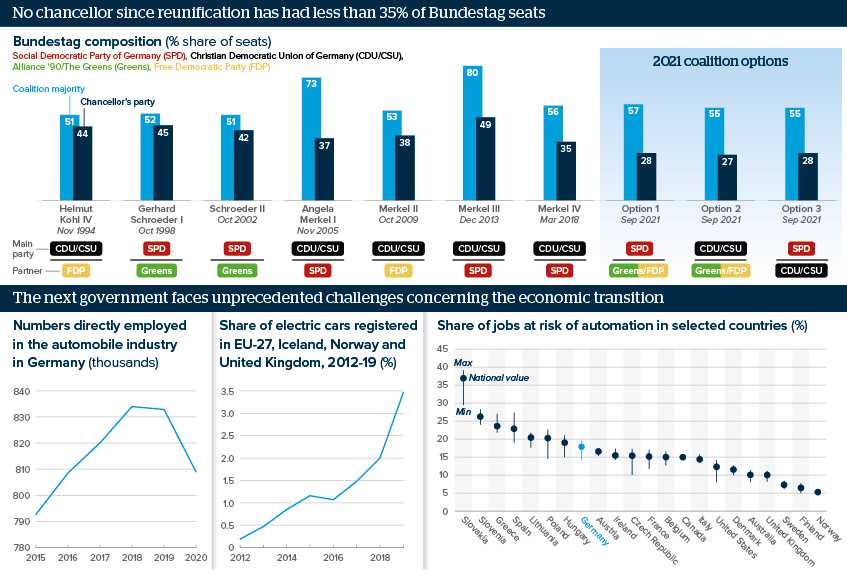Germany’s new government will have a weak base
Germany’s policy direction and decision-making will be more contested following the election results
Source: The Federal Returning Officer; German Federal Bureau of Statistics, European Environment Agency
Outlook
The Greens and FDP will probably be in the next government, but if they cannot agree on policy then the only alternative would be another coalition between the SPD and CDU. The election result was indicative of deepening political fragmentation and leaves the next government facing a more contested policy and decision-making landscape.
The weak base of the next government coincides with unprecedented challenges that Berlin has to address, notably climate change, digitisation, modernising telecommunications infrastructure, and creating new opportunities for those who will lose jobs to automation over the coming years. Domestic challenges will leave Germany’s government with less space to provide strategic direction vis-à-vis EU affairs and Europe’s place in a world of intensifying geopolitical rivalry.
Impacts
- Huge differences between the FDP and Greens over climate and energy policy suggests coalition talks will be the most protracted ever.
- A coalition including the SPD and Greens could undermine EU plans to include road transport and heating in its Emissions Trading System.
- Coalition negotiations over climate policy could impact proposals agreed at the UN Climate Change Conference in November.
- The next government will represent more continuity than change in relation to fiscal and foreign policy.
See also
- German foreign policy will struggle under coalition - Oct 27, 2021
- EU-US cooperation in tech council likely to be limited - Oct 11, 2021
- Chances of a centre-left German government have risen - Oct 7, 2021
- German election wide open as race enters final stages - Sep 7, 2021
- Elections will determine Germany’s fiscal direction - Aug 26, 2021
- More graphic analysis
